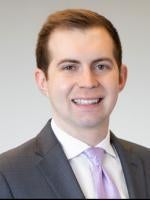As 2022 comes to a close, is it possible to predict a trend for corporate and white-collar enforcement by the U.S. Department of Justice in 2023? Yes: enforcement will increase in 2023, and it will increase yet more in 2024. Understanding the Department as a dispersed, human institution that responds to incentives explains why.
U.S. Attorney General Merrick B. Garland and Deputy Attorney General Lisa O. Monaco, along with a host of other officials in leadership, have been explicit that they are prioritizing the investigation and prosecution of financial and corporate malfeasance. Early this year, for example, AG Garland told the ABA Institute on White Collar Crime that he “had seen the Justice Department’s interest in prosecuting corporate crime wax and wane over time. Today, it is waxing again.” His remarks complemented and reinforced those of DAG Monaco in the fall of 2021, when she delivered the keynote address at the ABA’s 36th National Institute on White Collar Crime and announced the Biden administrations intention “to better combat corporate crime.”
In addition to remarks like these, in October 2021 the DAG issued one memorandum and, in September 2022, a second memorandum, announcing revisions to corporate criminal enforcement policies, which apply very nearly across the entire Department and include significant policy changes that favor stronger corporate enforcement. As we’ve discussed, these changes may be meaningful for certain existing investigations and prosecutions.
Arguably more important than the actual policy changes themselves is their symbolism. What they’re saying is, we’re very serious about going after financial and corporate crime. One audience for that message is the private sector, which the Department is explicitly urging to invest in compliance. But another important audience for that message is the prosecutors within DOJ.
More than anything else, this express talk of prioritizing corporate criminal enforcement, coupled with internal DOJ policy changes that signify seriousness of purpose, will lead to more and more investigations and cases. Understanding that DOJ is a human institution—and a generally decentralized one at that—explains why that is.
The Department has many prosecutors working for its litigating divisions in Washington, D.C., and many more spread throughout the 94 U.S. Attorney’s Offices across the country and in U.S. territories. Each one possesses significant day-to-day discretion regarding the cases on which to focus and, for many, which matters presented by agents warrant encouragement in further investigation. Particularly in the context of white-collar enforcement, many investigations require prosecutors and agents working closely together, since they often involve significant legal process, as well as investigative decisions that could have important prosecutorial ramifications (such as, when and which suspected conspirators to approach, and in which order).
Department leadership encouraging focus on these kinds of cases will lead prosecutors to devote more energy and attention to such matters than to others. And that has a direct effect on how agents conduct investigations because, separate and apart from the priorities that each law enforcement agency develops on its own, an under-appreciated motivating factor for investigations is the knowledge that the work put in will eventually pay off in the form of a motivated and engaged prosecutor who seeks to further the investigation and ultimately bring charges.
On top of this basic framework of re-orienting priorities across a dispersed network of agents and prosecutors through statements and supportive policy changes, the other direct way to increase investigative and prosecutorial productivity is to increase specifically dedicated resources. Here, the Department has focused hiring and requests for additional resources the last two years on agents and prosecutors to target financial and anti-corruption efforts. Further complementing this shift in priorities are a number of specific initiatives—targeting Covid fraud, kleptocracy, cryptocurrency, and cyber-fraud enforcement, for example—that will also generate white-collar cases.
Most investigations of alleged fraud or corruption take several years. As more agents and prosecutors across the country devote their attention to such matters, the total number of such investigations will continue to increase year over year. The current Administration, moreover, has confirmed only about half of its U.S. Attorneys. The installation of more U.S. Attorneys will replicate, on a local level, the national shift toward increased corporate enforcement.






 />i
/>i
